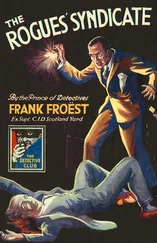The offshore industry had its own top ten of greatest risks. Struts within the steel framework that supported the platforms might collapse. Freak waves, massive surges of water caused by a combination of current and wind, were the industry's equivalent of a maximum credible accident. Pontoons that broke free or tankers with engine failure were dangerous too. But near the top of the hit parade of horror was the gas leak. Escaping gas was almost impossible to detect. In most cases it was only noticed when it was too late and fire had broken out. In incidents like that the platform exploded: more than 160 people had died on the British Piper Alpha, the biggest disaster in the history of the industry.
But a seaquake was the ultimate nightmare.
And this, Jörensen realised, was a quake.
Anything could happen now. When the ground shook, events spun out of control. Metal warped and snapped. Leaks sprang up and fires broke out. If the tremor was enough to rattle the platform, they could only hope that things wouldn't get worse, that the seabed wouldn't cave in or slump, and that the rig's foundations would withstand the shock. But in addition to all that, another problem was associated with quakes, which no one could do anything about.
And it was about to hit the platform.
Jörensen saw it coming and knew that his chances were nil. He turned and made for the steel steps, trying to escape his lofty perch.
It happened quickly.
He lost his footing and fell. Instinctively his fingers clutched the metal grating beneath him. An infernal noise broke out, a roaring and cracking as though the platform were breaking apart. There was screaming, a deafening bang, and Jörensen was tossed against the railings. Pain seized him. As he hung there in the metalwork, the sea reared up out of nowhere. He could hear the shriek of tearing metal and realised that the whole platform was tilting. His mind shut down. Now he was just a panic-stricken body, making futile attempts to crawl away from the approaching water. He dragged himself up the slope that, seconds before, had been a floor, but the incline was getting steeper.
His strength was running out, the fingers of his right hand let go of the metal. There was a sickening jerk and he was hanging by one arm. The derrick was toppling and the gas flame on the boom was no longer shooting out across the water but rising vertically into the dark sky.
Then everything exploded in a fiery, incandescent cloud, and Jörensen was cast into the sea. He didn't feel the pain in his lower arm, where the blast had severed his hand, leaving it hanging in the metal. Before the spiral of flames could engulf him, the tsunami hit the sinking platform. Gullfaks C was blasted to pieces, the concrete pillars plunging into the sea.
Granddad, tell us a story…
OSLO, Norway
The woman frowned as she listened to him. 'What do you mean?' she asked. 'A kind of chain reaction, did you say?'
She was on the Ministry of Environment's Disaster Management Committee, and she was used to being confronted with the most outrageous theories. But she knew of the Geomar Centre, which didn't usually make ludicrous claims. She focused on understanding what the German scientist on the telephone was trying to say.
'Not exactly,' said Bohrmann. 'It's simultaneous . The damage is occurring all along the slope. It's taking place everywhere at exactly the same time.'
The woman swallowed. 'And… which areas will he hit?'
'That depends on the location of the break and how far it extends. Still, a large proportion of the coast, I'd say. Tsunamis stretch thousands of kilometres. We're informing anyone in the vicinity- Iceland, the UK, Germany, everyone.'
The woman stared out of her office window. She was thinking of the oil platforms, stranded in the sea. Hundreds of them, as far north as Trondheim.
'What will happen to the coastal regions?' she asked dully.
'You should make plans to evacuate.'
'And the offshore industry?'
'As I said, it's hard to predict. If we're fortunate, there'll be a series of small-scale landslides. In that case, the platforms might wobble, but basically they'll be fine. On the other hand, if. . .'
The door opened and a man rushed in. His face was white. He thrust a sheet of paper in front of her and signalled to her to end her conversation. She picked up the printout and scanned the short text. It was the transcript of a radio message from a ship. The Thorvaldson .
As she read on, she felt as though the ground were slipping away from her.
'The warning signs are already there,' Bohrmann was saying. 'In the event of it happening, anyone living on the coast should know what to expect. Tsunamis make their presence known before they strike. When the wave is approaching, the sea level rises and falls. It's rapid, and it happens several times, so you'd notice if you knew what to look for. After ten to twenty minutes the water retreats from the shore. Reefs and rocks become visible. You start to see parts of the seabed that are usually covered. That's the last warning. Then you must head for higher ground.'
The woman didn't speak. She'd almost stopped listening. A few minutes earlier she'd been trying to imagine what would happen if the man was telling the truth. Now she was picturing what was taking place that second.
SVEGGESUNDET, Norway
Lund was dying of boredom. The kitchen assistant had switched on the espresso machine for her benefit and the coffee had been delicious. And despite the stormy weather and poor visibility, the view of the sea through the panoramic windows while she drank it had been amazing. But Lund found the wait unbearable.
A blast of cold air hit the room.
'Hello, Tina.'
It was a friend of Kare's, Ake. He ran a successful boat-hire business in Kristiansund that made a lot of money in the summer.
They talked a bit about the weather. Then Ake asked, 'So what are you doing here? Visiting Kare?'
'That was the plan.' She smiled wryly.
Ake looked at her in surprise. 'So where is he?'
'It's my fault. I'm early.'
'Give him a call, then.'
'I've tried. Voicemail.'
'Of course.' Ake slapped his forehead. 'I'd forgotten. He won't have any reception.'
Lund sat up. 'You know where he is?'
'Sure, I was with him. We took a trip to Hauffen.'
'The distillery-?'
'That's right. He's buying spirits. We sampled one or two, but you know Kare – he drinks less than a monk during Lent.'
'Is he still there?'
I left him chatting with them in the cellars. You should head over. Do you know where Hauffen is?'
Lund did. The little distillery produced an excellent aquavit reserved for the Norwegian market. It was on a low plateau to the south, about ten minutes away on foot. She could be there in two minutes by car, if she took the inland road. But somehow the thought of a short walk appealed to her. Besides, she'd sat in the jeep long enough already. I'll walk,' she said.
'In this weather?' Ake pulled a face. 'Well, it's up to you. Don't blame me if you get webbed feet.'
'Better than putting down roots.' She stood up. 'See you later. I'll bring him back here.'
Outside she pulled up her jacket collar, walked down to the beach and setoff. On good days the distillery was clearly visible. Right now, it was just a faint grey outline through the slanting rain.
As she left the Fiskehuset behind her, she gazed out to sea. She must have been mistaken earlier. She'd thought the stony beach seemed longer than usual, but now it looked the same. No … it might be a bit smaller.
She shrugged and carried on.
When she arrived at the distillery, soaking wet, there was no one in the foyer. On the far side a wooden door stood open. Light shone up from the cellars. She went straight down the stairs. There she found two men, leaning against the barrels, chatting, each with a glass in his hand. They were the two brothers who owned the distillery – friendly old men with weather-beaten faces. Kare was nowhere to be seen.
Читать дальше












